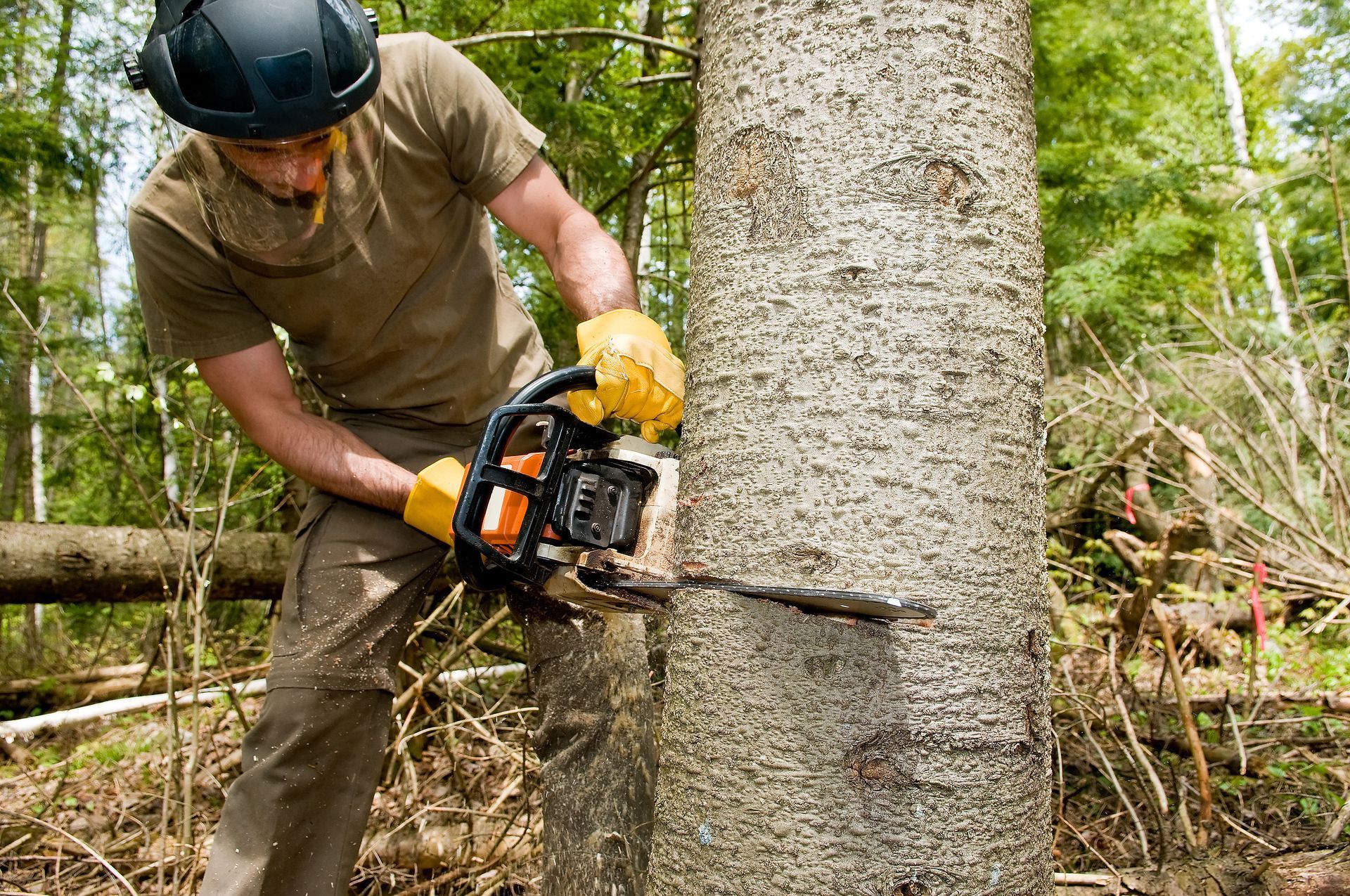The Future of the Lawn Care Service Industry
The lawn care service industry is in a state of transformation, driven by technological advancements, environmental considerations, and shifting consumer preferences. This article explores the future of the industry, focusing on emerging trends and innovations that are set to redefine traditional lawn care practices.
Technological Innovations Transforming Lawn Care
Robotic mowers represent a significant leap in lawn care technology, providing homeowners with a hands-off approach to lawn maintenance. These devices are equipped with sophisticated sensors that allow them to navigate complex lawn layouts with ease. Automation reduces the time and effort required for lawn care, letting homeowners focus on other tasks. The market for robotic mowers is expected to grow as they become more affordable and efficient over time. Not only do they promise convenience, but they also offer precision, cutting grass to exactly the desired height.
Smart irrigation systems utilize sensors and weather data to optimize watering schedules, promoting water conservation. These systems can be controlled via smartphone apps, allowing users to adjust settings remotely and receive real-time updates on water usage. This technology plays a crucial role in sustainable lawn care by minimizing water wastage. As weather patterns become more unpredictable due to climate change, the demand for intelligent water management solutions is on the rise. According to Mordor Intelligence, the U.S. lawn care market is expected to grow at a 5.2% CAGR, partly due to the adoption of smart technologies like these.
AI and data-driven analytics are transforming the lawn care industry by providing homeowners with insights into soil health, moisture levels, and other key metrics. These technologies can predict potential issues and suggest preventive measures, ensuring lawns remain healthy and lush. By analyzing data collected from various sensors, AI can tailor lawn care routines to specific conditions. This targeted approach not only saves time and resources but also boosts lawn vitality and resilience.
Drones offer a bird's-eye view of larger properties, making it easier to survey and monitor lawn conditions. Equipped with cameras and sensors, drones can identify weeds, disease, and pest infestations before they become problematic. They can also assist in delivering treatments, fertilizers, and pesticides, ensuring even distribution. As drone technology becomes more accessible, its integration into lawn care services is anticipated to grow.
Sustainability and Eco-Friendly Practices
There's an increasing shift towards organic lawn care solutions as consumers seek environmentally friendly options. Organic fertilizers and pest control methods avoid harmful chemicals, reducing environmental impact and promoting biodiversity. This approach encourages healthier soil and reduces the risk of chemical runoff affecting local ecosystems.
Water conservation techniques are another priority. Efficient irrigation systems, rainwater harvesting, and drought-resistant plant varieties reduce the amount of water required for lawn maintenance. Homeowners are also adopting xeriscaping, a landscaping method that minimizes irrigation needs through drought-tolerant plants.
The industry is also reducing chemical pesticide usage. Biological pest control, which involves introducing beneficial insects, is an effective method, while integrated pest management combines multiple strategies to limit chemical reliance. Additionally, incorporating native plants into landscaping reduces resource needs while supporting biodiversity.
Solar-powered lawn equipment is another innovation. These tools reduce reliance on fossil fuels and lower operational costs while minimizing carbon footprint. Embracing renewable energy sources enhances sustainability and reflects global climate goals.
Changing Consumer Preferences
Modern consumers are increasingly drawn to low-maintenance gardens. Busy lifestyles and the desire for leisure time fuel this trend. Options like artificial turf, ground covers, and minimalist landscaping appeal to those seeking beauty without constant upkeep.
There's also growing demand for personalized lawn designs. Consumers want unique outdoor environments with features such as themed gardens, water features, and integrated living spaces. This reflects a shift from generic lawns to tailored landscapes that mirror personal style.
Health and safety remain key drivers. Families are more conscious of chemical exposure, leading to a preference for organic and safer lawn care practices. This aligns with the industry's emphasis on wellness.
Consumers are also favoring sustainable practices. Eco-friendly products, organic treatments, and sustainable landscaping are in higher demand as awareness of environmental issues rises.
Lastly, there's growing demand for year-round services. Seasonal variability drives homeowners to seek continuous care that adapts to changing weather. This creates opportunities for providers offering consistent, long-term service plans.
Impact of Climate Change on Lawn Care
Climate change poses new challenges for the lawn care service industry. Drought conditions require drought-resistant grasses, efficient irrigation, and mulching to retain moisture. These adaptations conserve resources and support sustainability.
Extreme weather events such as heavy rains and hurricanes call for resilient landscaping, better drainage solutions, and robust plant choices. Guidance on post-storm recovery also helps mitigate long-term damage.
Shifts in planting seasons and growth cycles further complicate care. Flexible lawn care schedules and technology-driven adaptation are increasingly necessary.
Heat-resistant turf varieties are gaining traction as temperatures rise. These grasses withstand extreme heat while minimizing water use.
Finally, pest and disease management must evolve as climate change alters infestation patterns. Integrated pest management and proactive monitoring will be vital moving forward.
Evolving Business Models in Lawn Care
Subscription-based services are becoming more popular, offering regular maintenance for a set fee. This model benefits both consumers, who get consistent service, and companies, which gain predictable revenue.
On-demand solutions are also rising. Digital platforms allow homeowners to request services as needed, catering to preferences for flexibility.
Franchising presents opportunities for entrepreneurs under established brands, though it comes with challenges like royalty fees and compliance with brand standards.
Partnerships with tech companies are reshaping the industry. These collaborations improve products, digital tools, and data capabilities, integrating advanced solutions without requiring full business model overhauls.
Diversification is also key. Many businesses now offer services like pest control, landscaping, and tree care in addition to mowing and fertilizing. This broader scope helps them stay competitive and meet client expectations.
Another emerging trend is the focus on customer experience as part of the business model. Many lawn care companies are introducing online portals, subscription apps, and loyalty programs that make scheduling, billing, and communication more seamless. By prioritizing convenience and transparency, businesses can build long-term trust while differentiating themselves in a competitive market.
Regulatory and Compliance Considerations
Pesticide regulations remain a central compliance issue, with strict federal, state, and local rules governing usage. Companies that prioritize safe practices build trust with clients and reduce risks.
Environmental standards are also important. Reducing waste, limiting chemical use, and promoting eco-friendly practices not only protect ecosystems but also enhance brand credibility.
Licensing and certification requirements help maintain professionalism. Staying current with credentials and training protects companies legally and builds consumer confidence.
Local and federal legislation further impacts operations, requiring businesses to adapt quickly to evolving rules. Companies that respond proactively can reduce liability and benefit from emerging opportunities.
Future regulatory trends will likely emphasize sustainability, environmental protection, and consumer safety. Proactive engagement with policy development can help businesses prepare for these changes.
The lawn care service industry is poised for significant change as it adapts to new technologies, consumer expectations, and environmental challenges. By embracing innovation, eco-friendly practices, and evolving business models, companies can remain competitive and deliver value in a future focused on sustainability.
If you’re ready to invest in a healthier, more resilient outdoor space, reach out to Pitts Lawn & Tree Service today. Our dedicated professionals are here to help you achieve a vibrant, sustainable lawn that enhances your property year-round.




Share On: